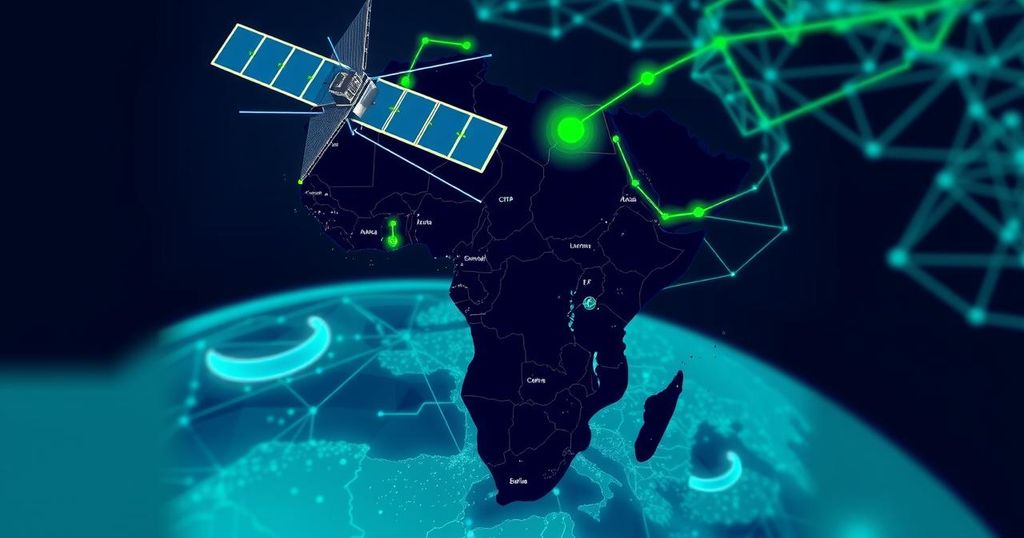Elon Musk’s Starlink: Racially Charged Tensions Over Operations in South Africa

Elon Musk’s Starlink faces challenges in South Africa due to black empowerment laws. Musk claims discrimination based on race, while South African authorities clarify that Starlink has not applied for necessary licenses. Proposed regulatory changes face political resistance. The situation underscores tensions between the U.S. and South Africa and could impact local internet accessibility.
Elon Musk’s Starlink is embroiled in a controversy regarding its operations in South Africa, primarily linked to the country’s laws promoting black empowerment. The situation has fueled tensions between the United States and South Africa, as Musk claimed on X, with over 219 million followers, that Starlink’s inability to launch is due to his race. However, the Independent Communications Authority of South Africa (Icasa) clarified that Starlink has yet to apply for a license to operate.
To operate in South Africa, Starlink must obtain specific network and service licenses that mandate 30% ownership by historically disadvantaged groups, primarily the nation’s black population affected by apartheid policies. Since the ANC came to power in 1994, it has enacted economic policies aimed at fostering black ownership and mitigating past injustices. Musk perceives these requirements as obstacles to Starlink’s operations.
Icasa reported that Musk’s assertions about exclusion due to empowerment laws are misleading, highlighting that over 600 U.S. companies, including Microsoft, successfully operate in South Africa while adhering to local regulations. The Communications Minister, Solly Malatsi, of the opposition Democratic Alliance, has expressed intentions to ease these regulations, suggesting the possibility of Starlink bypassing the black ownership requirement through social investment instead.
However, Malatsi has yet to implement any changes, encountering political resistance from ANC lawmakers. Khusela Diko, the chairperson of the parliamentary communications committee, emphasized the need for compliance with existing laws regarding transformation in the technology sector, asserting that circumvention is unacceptable.
Musk’s criticisms reflect broader strained relations between the U.S. and South Africa, exacerbated during Donald Trump’s presidency. Musk’s claims of “racist ownership laws” and exaggerated allegations against the South African government have ignited controversy. In responses to his phrasing, South African officials have firmly opposed accusations of racial targeting, highlighting legislative efforts aimed at ensuring equity.
Starlink has encountered approval obstacles in other African countries as well. For instance, Lesotho granted Starlink a 10-year license following pressure from the U.S., which had previously imposed a tariff on imports. In Namibia, compliance with local ownership regulations has delayed Starlink’s license application, indicative of broader regional hesitance towards foreign enterprise without local involvement.
Despite these challenges, Starlink is operational in over 20 African nations, aiming to deliver high-speed internet to underserved regions, especially crucial in South Africa where approximately 20% lack internet access. Efforts to mediate relations between South Africa and the U.S. have been reinforced by the recent appointment of Mcebisi Jonas as special envoy, emphasizing the significance of a collaborative partnership to bolster economic ties and address local connectivity issues.
In summary, the controversy surrounding Elon Musk’s Starlink and its operations in South Africa stems from the nation’s black empowerment laws. Musk’s claims of racial discrimination are countered by regulatory authorities, indicating a lack of formal application from Starlink. With political opposition complicating potential regulatory adaptations, the situation reflects broader tensions between the U.S. and South Africa. Navigating these challenges could lead to advancements in internet accessibility, benefiting both parties involved.
Original Source: www.bbc.com







